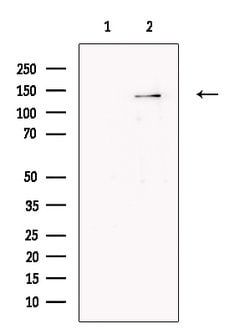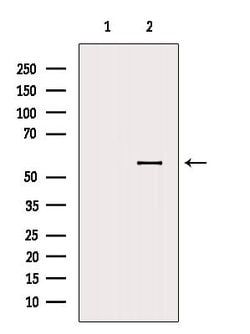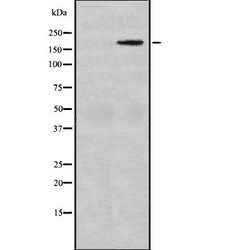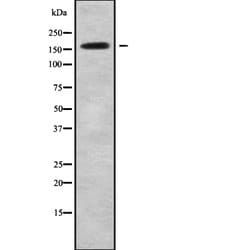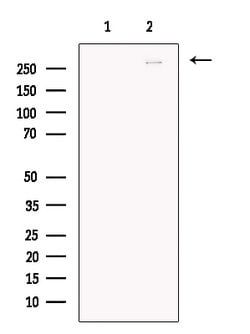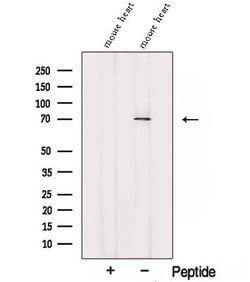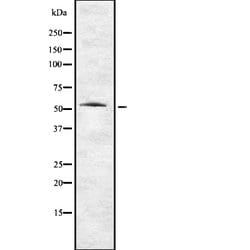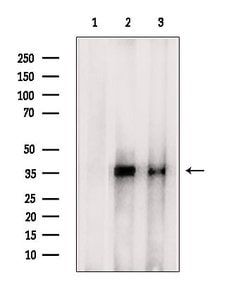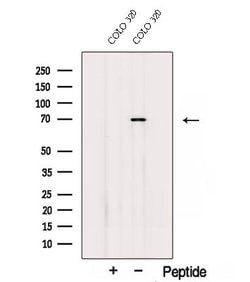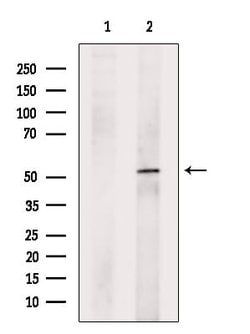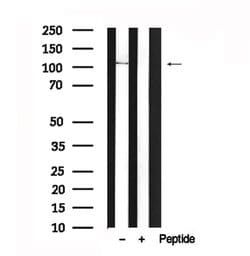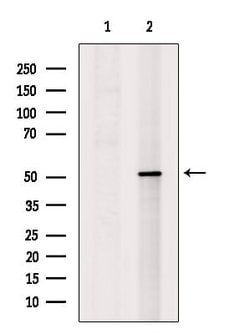SDPR Polyclonal Antibody, Invitrogen™
Manufacturer: Thermo Scientific
Select a Size
| Pack Size | SKU | Availability | Price |
|---|---|---|---|
| Each of 1 | PIPA5115877-Each-of-1 | In Stock | ₹ 46,502.50 |
PIPA5115877 - Each of 1
In Stock
Quantity
1
Base Price: ₹ 46,502.50
GST (18%): ₹ 8,370.45
Total Price: ₹ 54,872.95
Antigen
SDPR
Classification
Polyclonal
Conjugate
Unconjugated
Gene
CAVIN2
Gene Alias
caveolae associated protein 2; caveolae-associated protein 2; cavin 2; CAVIN2; cavin-2; EMBL:AAH81956.1}; phosphatidylserine binding protein; phosphatidylserine-binding protein; PS-p68; SDPR; sdpr {ECO:0000312; SDR; serum deprivation response; serum deprivation response protein; serum deprivation-response protein
Host Species
Rabbit
Purification Method
Affinity chromatography
Regulatory Status
RUO
Gene ID (Entrez)
20324, 316384, 8436
Content And Storage
-20°C
Form
Liquid
Applications
Western Blot
Concentration
1 mg/mL
Formulation
PBS with 50% glycerol and 0.02% sodium azide
Gene Accession No.
O95810, Q63918, Q66H98
Gene Symbols
CAVIN2
Immunogen
A synthesized peptide derived from human CAVIN2(Accession O95810), corresponding to amino acid residues E213-V263.
Quantity
100 μL
Primary or Secondary
Primary
Target Species
Human, Mouse, Rat
Product Type
Antibody
Isotype
IgG
Description
- Antibody detects endogenous levels of total SDPR
- The serum deprivation-response protein (SDPR) is a calcium-independent phospholipid-binding protein whose expression is increased in serum-starved cells
- SDPR is a substrate for protein kinase C (PKC) phosphorylation and recruits the polymerase I and transcript release factor (PTRF) to caveolae
- Removal of this protein causes caveolae loss and its over-expression results in caveolae deformation and membrane tubulation
- Both SDPR and PTRF, as well as the other member of the cavin family PRKCDBP were down regulated in breast cancer cell lines and breast tumor tissue, suggesting that expression of the cavin family proteins could be a useful prognostic indicator of breast cancer progression.
